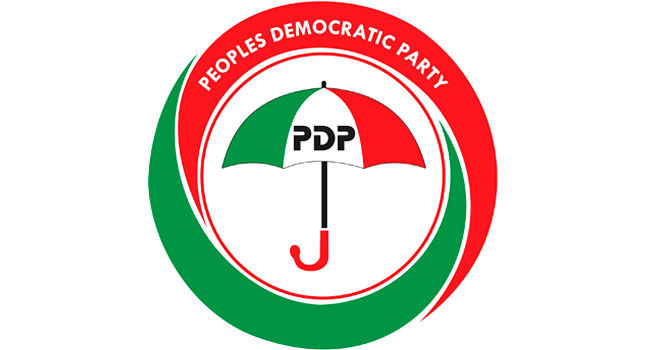11 PDP governors seek Supreme Court to stop Rivers emergency rule.
A total of 11 Peoples Democratic Party governors have approached the Supreme Court, disputing President Bola Tinubu’s authority to suspend a democratically elected state structure.
The governors’ lawsuit also challenges the declaration of a state of emergency rule in Rivers State.
While the media first stated that the complaint had been brought before the Supreme Court, the governor’s suit was only filed on Tuesday.
On March 18, President Bola Tinubu imposed a state of emergency in Rivers State, suspending Governor Siminalayi Fubara, the state deputy governor, Mrs Ngozi Odu, and all elected members of the Rivers State House of Assembly for a term of six months.
Following the suspension, President Tinubu nominated Vice Admiral Ibok Ete Ibas (retd.) as the sole administrator of Rivers State for the duration of the suspension.
Meanwhile, the National Assembly endorsed the president’s decision to execute the suspension.
Aggrieved by the suspension of one of their fellow party governors, 11 PDP state governors filed a petition with the Supreme Court challenging the suspension, the proclamation of emergency rule in Rivers State, and the appointment of the single administrator.
The governors premised the summons on eight grounds, according to the suit SC/CV/329/2025.
Adamawa, Enugu, Osun, Oyo, Bauchi, Akwa Ibom, Plateau, Delta, Taraba, Zamfara, and Bayelsa are the states represented in the lawsuit.
The plaintiffs requested the Supreme Court to examine whether the president has the authority to suspend a state’s democratically elected structure.
They also sought the Supreme Court to rule on whether the president’s proclamation of a state of emergency in Rivers State violated the 1999 Constitution.
Among other things, all 11 governors in the suit, filed through their state Attorney Generals, prayed the court to determine the following: “Whether upon a proper construction and interpretation of the provisions of Sections 1(2), 5(2), 176, 180, 188, and 305 of the Constitution of the Federal Republic of Nigeria 1999, the President of the Federal Republic of Nigeria can lawfully suspend or in any manner whatsoever interfere with the offices of a Governor and the Deputy Governor.
“Whether, upon a proper construction and interpretation of the provisions of Sections 1(2), 4(6), 11(4) & (5), 90, 105, and 305 of the Constitution of the Federal Republic of Nigeria 1999, the President of the Federal Republic of Nigeria can lawfully suspend the House of Assembly of any of the constituent 36 States of the Federation of Nigeria under the guise of, or pursuant to, a Proclamation of a State of Emergency in any of such States, particularly in any of the Plaintif
“Whether the consequent threat by the first defendant acting on behalf of the president to the states of the federation, including the plaintiffs’ states, to the effect that the offices of the governor and deputy governor of the states can be suspended by the president by virtue of a proclamation of a state of emergency, is not in violation of the provisions of sections 1(2), 4(6), 5(2), 11(2), and (3) of the Constitution of the Federal Republic of Nigeria 1999 and in
Meanwhile, the respondents in the suit must file an appearance within 14 days of receiving the summons, including the day of service.
The suit filed by the opposition governors puts an end to weeks of suspense about what action they would take after rumours that they had previously petitioned the Supreme Court to contest the president’s move.
Before Tuesday, seven PDP governors from Bauchi, Adamawa, Bayelsa, Enugu, Osun, Plateau, and Zamfara states reportedly resolved to oppose the president’s action by submitting a Supreme Court petition.
However, various Supreme Court and Ministry of Justice sources told The PUNCH that they were yet to be served with the court papers, citing our correspondent’s findings.
When asked if the Attorney General of the Federation and Minister of Justice, Lateef Fagbemi (SAN), had been served with the PDP Governors petition challenging Fubara’s suspension, a state counsel at the Ministry of Justice in Abuja responded, “We haven’t seen it.”
A week after the action was allegedly filed at the Supreme Court, he was informed by another state counsel in the Federal Ministry of Justice that it had yet to be served on the Federal Government.
The person, who works for the Attorney General of the Federation, spoke on the condition of anonymity because he was not permitted to speak to the media.
He stated, “We at the Ministry of Justice have yet to be served with the governors’ suit, which they claim they filed before the Supreme Court to challenge Fubara’s suspension.” We began preparing our response as soon as we learnt of the lawsuit.
“We have our response ready because we have been reading literature for three days in preparation, but we have yet to be served. “We’re still waiting.”
Last month, while commenting about the Rivers State crisis, Bayelsa State Governor Duoye Diri, Chairman of the South-South Governors’ Forum, remained silent on the filing of a lawsuit.
Rather, he emphasised the need for the federal government to immediately overturn the Rivers emergency rule, reinstate Governor Fubara, and convene a panel to reconcile Fubara and the state legislature.




